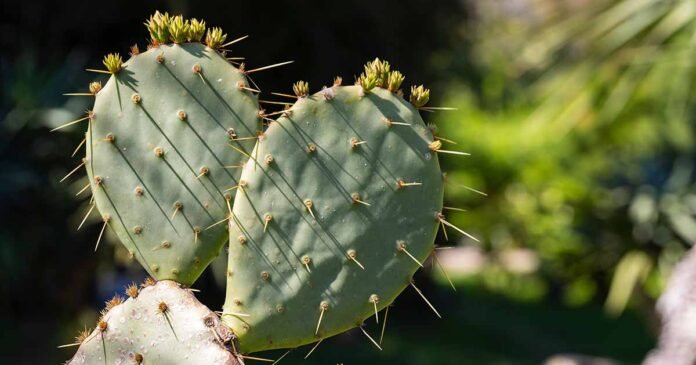What You’ll Need
Pruning a cactus isn’t complicated, but using the right tools helps prevent injury and avoid unnecessary damage to the plant.
The spines can cause serious injury, so some protective gear is essential.
Wear safety glasses or goggles to protect your eyes, and use puncture-resistant gloves to shield your hands. For large or particularly spiny plants, gloves with extended cuffs will also protect your forearms.
I like to use heavy-duty bramble gloves for additional protection and to avoid scrapes.
You can find them in a choice of three sizes: small, medium, and large, available at Garrett Wade.
A solid set of hand pruners are ideal for removing small stems or pads, and spent flowers. Choose a product with high-quality blades that cut cleanly without crushing the tissue.
I’m fond of these colorful secateurs from Garrett Wade, which are available in purple, sky blue, black, and rose gold.
The ultra-sharp blades have a gold-colored titanium nitride coating to help preserve sharpness.
For stems or branches that are too thick for hand pruners, use a pruning saw. Choose a model with fine teeth, which will make smoother cuts and reduce tissue damage.
Japanese-Style Folding Hand Saw
Need a pruning saw? You can find a Japanese-style product with a 10-inch blade that folds into a rubber-coated handle available from Garrett Wade.
You’ll also need something to disinfect your tools.
An isopropyl alcohol solution of at least 70 percent can be sprayed directly on the blades or applied with a cloth. Allow the surface to dry before continuing.
When to Prune
The right time to prune depends on which parts you’re removing and why.


Spent flowers can be trimmed as soon as they fade.
Pads or stems that are diseased, infested, damaged, or soft and mushy should be removed promptly to prevent further decline. Fruits can be removed if you want to prevent self-seeding.


Stems growing into walkways, pads interfering with nearby plants, or any growth that disrupts the shape of the plant can be pruned at your discretion.





